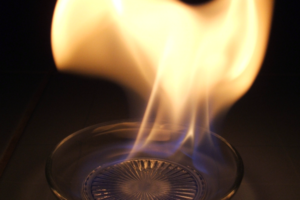 A.P. Moller-Maersk says it will focus on the development of three particular kinds of fuel as it moves toward carbon-neutral shipping.
A.P. Moller-Maersk says it will focus on the development of three particular kinds of fuel as it moves toward carbon-neutral shipping.
The Danish shipping and logistics giant said a study it conducted with Lloyds Register (LR) confirmed that the best opportunities for decarbonizing shipping lie in finding new sustainable energy sources.
“Based on market projections, the best positioned fuels for research and development into net zero fuels for shipping are alcohol, biomethane, and ammonia,” it said in a statement on October 24.
“Energy efficiency has been and still is an important tool for Maersk to reduce CO2 emissions. Efficiency measures have positioned Maersk 10% ahead of the industry average. But getting to net zero requires a total shift in the way deep sea vessels are propelled. The shipping industry needs to introduce carbon neutral propulsion fuels and new technologies,” it added.
“The main challenge is not at sea but on land,” explained Soren Toft, Maersk chief operating officer. “Technology changes inside the vessels are minor when compared to the massive innovative solutions and fuel transformation that must be found to produce and distribute sustainable energy sources on a global scale. We need to have a commercially viable carbon neutral vessel in service 11 years from now.”
These three fuel pathways have relatively similar cost projections but different challenges and opportunities, said Maersk.
“It is too early to rule anything out completely, but we are confident that these three are the right places to start. Consequently, we will spend 80% of our focus on this working hypothesis and will keep the remaining 20% to look at other options,” said Toft.
“The next decade requires industry collaboration as shipping considers its decarbonisation options and looks closely at the potential of fuels like alcohol, biomethane and ammonia,” said LR CEO Alastair Marsh. “This joint modelling exercise between Lloyd’s Register and Maersk indicates that shipowners must invest for fuel flexibility and it is also clear that this transition presents more of an operating expenditure rather than capital expenditure challenge.”
Alcohols (ethanol and methanol) are not a highly toxic liquid with various possible production pathways—directly from biomass and/or via renewable hydrogen combined with carbon from either biomass or carbon capture. Existing solutions for handling the low flash point and for burning alcohols are well proven. Ethanol and methanol are fully mixable in the vessel’s bunker tanks, creating bunkering flexibility. However, the transition of the industry towards alcohol-based solutions is yet to be defined.
Biomethane on the other hand has a potential smooth transition given existing technology and infrastructure. The challenge however is “methane slip”—the emission of unburned methane along the entire supply chain.
Ammonia is truly carbon free and can be produced from renewable electricity. The energy conversion rate of this system is higher than that of biomaterial-based systems, but the production pathway cannot tap into potential energy sources such as waste biomass.
The main challenge for ammonia is that it is highly toxic and even small accidents can create major risks to the crew and the environment. The transition from current to future applications is also a huge challenge for ammonia, said Maersk.
According to Maersk and Lloyds Register, batteries and fuel cells are unlikely to have an immediate role in propelling commercially viable carbon neutral deep-sea vessels.
“Shipping is responsible for 2-3% of global greenhouse gas (GHG) emissions, so the industry has significant potential to help create a carbon-neutral economy by 2050. Maersk is determined to play its part by leading the development and scaling of future solutions,” said the statement.
Photo By SirVir
